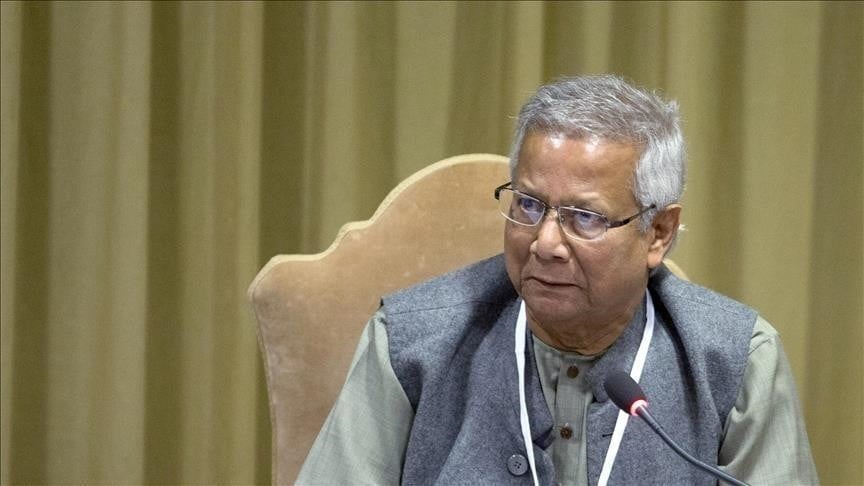
Nobel laureate Muhammad Yunus took charge of Bangladesh's caretaker government on Thursday, hoping to help heal the country that was convulsed by weeks of violence, forcing prime minister Sheikh Hasina to quit and flee to neighbouring India.
As chief adviser of the caretaker government, Yunus, also known as the 'banker to the poor', is tasked with bringing stability back to the country, which witnessed some of its worst violence in decades and then hold fresh parliamentary elections.
"The country has the possibility of becoming a very beautiful nation," Yunus earlier told reporters when he arrived in Dhaka, following medical treatment in Paris, after protesters backed him for the role in a caretaker government.
The student protesters had saved the country, he said, adding: "Whatever path our students show us, we will move ahead with that." He became emotional and seemed to hold his tears back as he referred to a student he said had been shot during the protests and that sacrifice could not be forgotten.
Many Hindu homes, temples and businesses were vandalised after Hasina's departure, and hundreds in the minority community have tried unsuccessfully to flee to India this week. The Bangladesh Hindu Buddhist Christian Unity Council said a schoolteacher was killed and 45 other people hurt.
Yunus' swearing-in plugged the power vacuum in the South Asian country of 170 million people with the fourth-largest Muslim population in the world, created after Hasina resigned and flew to India on Monday. President Mohammed Shahabuddin administered the oath of office to Yunus and 13 advisers
Nahid Islam and Asif Mahmud, two student leaders who are both in their mid-20s and led the protests, were among the 13 who joined the caretaker government, which will help the president govern. Three more advisers will be sworn in at a later date, officials said.
The ceremony at the official presidential residence started with a minute's silence as a mark of respect to the hundreds who were killed in the protests and clashes that erupted in July. Hasina's Awami League party does not figure in the interim government.
India's Prime Minister Narendra Modi congratulated Yunus and said New Delhi was committed to working with Dhaka to fulfil the "shared aspirations" of the people of both countries for "peace, security and development".
The student-led movement that ousted Hasina grew out of protests against quotas in government jobs that spiralled in July, provoking a violent crackdown that drew global criticism, though the government denied using excessive force.





1730884134-0/BeFunky-collage-(26)1730884134-0-165x106.webp)

1730979821-0/Copy-of-Untitled-(20)1730979821-0-270x192.webp)

1730980693-0/Untitled-design-(44)1730980693-0-270x192.webp)

1730974944-0/BeFunk_§_]-(48)1730974944-0.jpg)






COMMENTS
Comments are moderated and generally will be posted if they are on-topic and not abusive.
For more information, please see our Comments FAQ